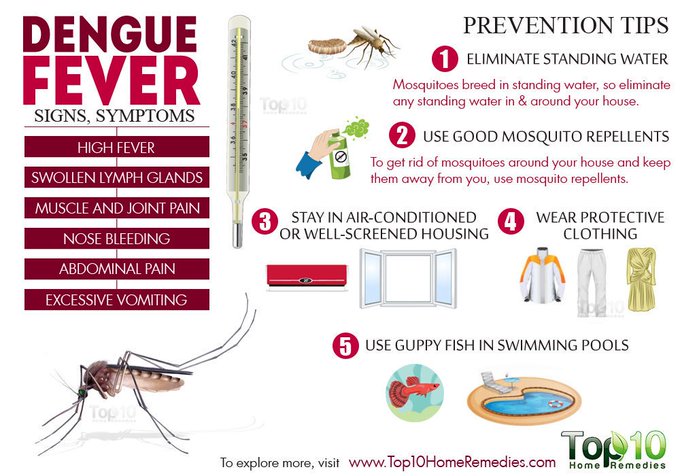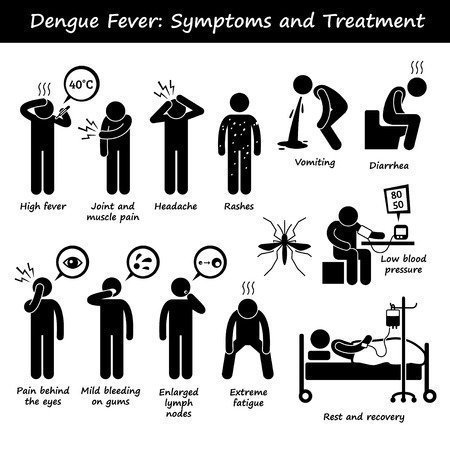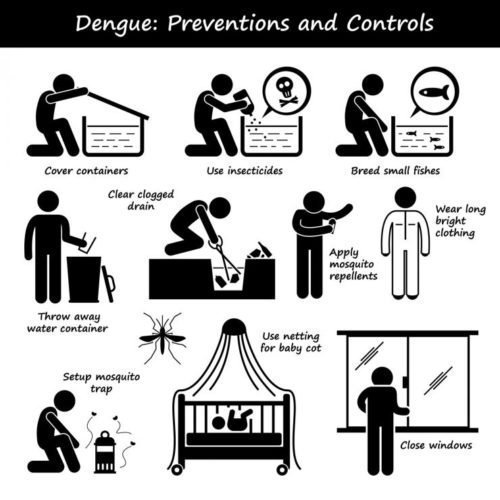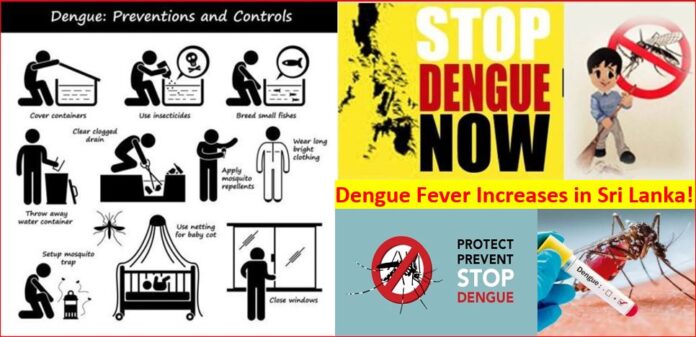Sri Lanka Dengue Fever May Increases with Monsoon Rains
So far this year 2021 according to EPID data, 7896 dengue cases report and 4 deaths report. Dengue fever increases in Sri Lanka, usually soon after rainfall as rains optimal for mosquitoes breeding. It is a leading public health problem in Sri Lanka. All 26 districts and all age groups are affected. Last year total 30,802 dengue cases and about 30 deaths report in Sri Lanka according to government’s official figures (EPID).
An estimated 400 million dengue infections occur worldwide each year. Dengue Fever may increases in Sri Lanka with monsoon rains – Dengue Fever Alert ! Always Be ALERT & clean your places and destroy mosquitoes breeding grounds.
Sri Lanka Dengue Fever May Increases with Monsoon Rains ! A tiny mosquito bite can take your life & your loved ones !
2019 year, 104,501 dengue cases and about 100 deaths was reported in Sri Lanka according to government’s official figures (EPID). With rains dengue fever was increased in Sri Lanka. Colombo, Gampaha, Kalutara, Jaffna, Kandy, Galle, Matale and Batticaloa districts have been identified Dengue high risk zones according to NDCU.
Sri Lanka Health officials have noted that an increase in mosquito population and predict that there is an increase risk of dengue spreading coming days, especially in urban and semi-urban areas. Health officials say that preventing the spread of Dengue should be given special attention as there is an increased risk of the mosquito-borne disease with the arrival of monsoon rains coming days.
Most dengue cases are reported between May and July and from October to January during the southwest and northeast monsoon rain seasons.

Lets keep fighting against Dengue Fever in 2020!
Sri Lanka Dengue Fever May Increases with Monsoon Rains. Always Be ALERT & clean your places and destroy mosquitoes breeding grounds.
Below listed last few years dengue cases and deaths.
2019 – 100 Deaths 104,501 Cases
2018 – 56 Deaths 50,163 Cases
2017 – 410 (184,442)
2016 – 77 (48,000)
2015 – 54 (29,000)
2014 – 99 (47,500)
Use Mosquito Nets, long clothing, Mosquito Repellents, Coils, closed doors & windows to avoid mosquito bites.
Consult a Doctor if Fever/ Headache/ Joint pain/ Vomiting persist more than 2 days
Symptoms of Dengue Fever
Symptoms, which usually begin four to six days after infection and last for up to 10 days, may include
- Sudden, high fever
- Severe headaches
- Pain behind the eyes
- Severe joint and muscle pain
- Fatigue
- Nausea
- Vomiting
- Skin rash, which appears two to five days after the onset of fever
- Mild bleeding (such a nose bleed, bleeding gums, or easy bruising)

Treatment for Dengue Fever
There is no specific medicine to treat dengue infection. If you think you may have dengue fever, you should use pain relievers with acetaminophen and avoid medicines with aspirin, which could worsen bleeding. You should also rest, drink plenty of fluids, and see your doctor. If you start to feel worse in the first 24 hours after your fever goes down, you should get to a hospital immediately to be checked for complications.
Preventing Dengue Fever
The best way to prevent the disease is to prevent bites by infected mosquitoes, particularly if you are living in or traveling to a tropical area. This involves protecting yourself and making efforts to keep the mosquito population down. In 2019, the FDA approved a vaccine called Dengvaxia to help prevent the disease from occurring in adolescents aged 9 to 16 who have already been infected by dengue. But, there currently is no vaccine to prevent the general population from contracting it.

To protect yourself:
- Use mosquito repellents, even indoors.
- When outdoors, wear long-sleeved shirts and long pants tucked into socks.
- When indoors, use air conditioning if available.
- Make sure window and door screens are secure and free of holes. If sleeping areas are not screened or air conditioned, use mosquito nets.
- If you have symptoms of dengue, speak to your doctor.
To reduce the mosquito population, get rid of places where mosquitoes can breed. These include old tires, cans, or flower pots that collect rain. Regularly change the water in outdoor bird baths and pets’ water dishes.
#DengueSL is the popular Social Media hashtag for Dengue Fever in Sri Lanka.

